Traveling Safely in the Philippines
By Sydney Tong on June 08, 2017. Read time: 8 mins.
The Philippines is known for their beautiful beaches, green forests, chocolate mountains and the friendly people. This group of islands is also infamously known for its dangerous regions. With caution and preparation, foreigners can know what to expect when traveling to this developing country.
- Register with your country's embassy
- Plan ahead
- Absolutely no drugs
- Do not carry cash
- Lock everything
- Use separate pockets
- Leave behind original documents
- Keep track of your stuff
- Know the neighborhoods
- People don't want to be your friend
- Public transportation
- Make travel arrangements
- Avoid traveling at night
- Avoid large gatherings
- Update vaccinations
- Bring medicine
- Pace your drinking
- Bottled Water
- Dress modestly
- Who to trust?
- Stay calm
Every country has areas where more violence occurs and areas that are safe, and the Philippines is no different. I do not like to use the word safe in regards to travel because it implies that there is nothing to worry about and gives travelers a false sense of security. I think it is better to use the word safe in relative terms.
While I cannot tell you whether the Philippines is a safe travel destination for you, I can inform you of the facts and methods of keeping yourself safe while there. You know your tolerance level, what you can handle and what you can enjoy.
The southern island of Mindanao is notorious for being dangerous and harboring terrorists. As of May 23, 2017, Duterte has declared martial law in Mindanao for 60 days. Foreigners should not go to this area as the risk of kidnapping is high.
The global peace index attempts to measure peace in 163 countries. Launched in 2007, it is the first study to rank countries around the world according to peacefulness. Is uses three broad themes; the level of safety and security in society, the extent of domestic and international conflict and the degree of militarization. It is updated every year, and as of 2016, the Philippines is rated 139 out of 163 countries. For reference; ranked number 1 is Iceland, the USA is 103, and Syria is 163.
Use caution when planning your itinerary, use references to see which areas/cities/provinces you should avoid during your trip. Listen to the travel warnings when making plans and stay up-to-date. Build your itinerary around popular tourist destinations and populated areas. If you want to know 'off the beaten path' locations, I strongly encourage you to look into hiring a private guide.
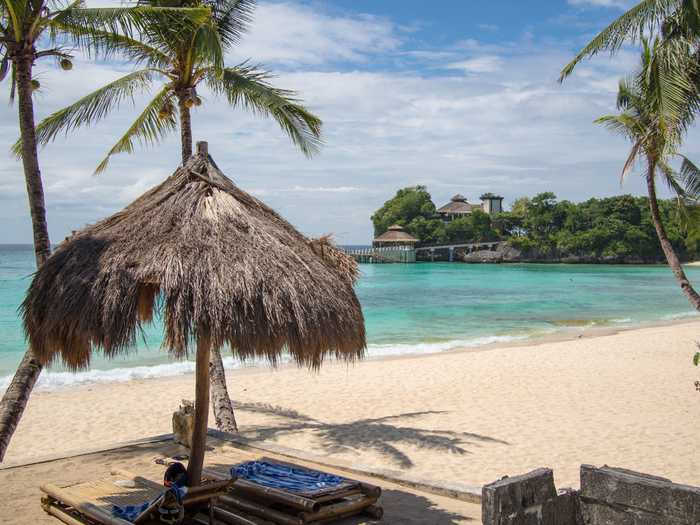
Register with your country's embassy
Register with your country's embassy before leaving on vacation. If anything goes wrong, they will know you are there and will be able to help you. The U.S. offers STEP, Smart Traveler Enrollment Program. STEP gives safety conditions of travel destination, helps the U.S. Embassy contact citizens in an emergency and helps family and friends to get in touch during an emergency. Register for the U.S. STEP Program here
Plan ahead
Planning is one of the best methods of arming yourself against potential adverse situations. Check your country's travel alerts and plan your route and itinerary accordingly. Booking accommodations and doing research on the area you are staying in ahead of time will give you a good idea of what to expect during your stay.
Absolutely no drugs
The country has been going through a rough period of political unrest that worries potential travelers. Rightfully so. The latest President, Rodrigo Duterte, has allowed citizens to kill suspected drug users and drug dealers. Since his inauguration in 2016, thousands of vigilante style deaths have occurred. Since the release of this article, it averages to about 36 deaths per day.
Do not bring or use drugs at all while on vacation. If you enjoy recreational drug use and can't keep away during your trip, then I do not recommend that you visit. If marijuana is legal in your country or state, do not bring it to the Philippines. There is a ZERO tolerance policy, even on the islands.
The poverty level is high in the Philippines, making westerners and tourists more susceptible to theft and other crime.
Do not carry cash
It is a good idea to limit the amount of cash that you carry with you. Decide how much you will need for the day and keep the rest at the hotel in a safe, locker or your luggage. Don't bring all your credit/debit cards with you either.
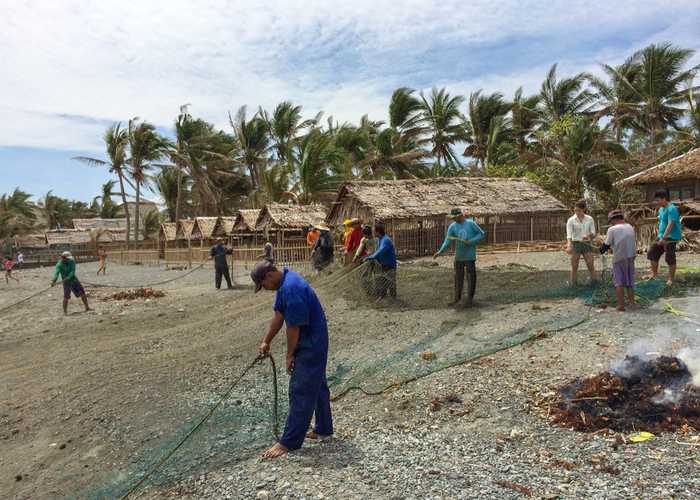
Lock everything
Most hotels and hostels should have a safe or locker for your important documents, cash and other valuable items. Purchase a lock before you travel just in case your hotel/hostel does not have a lock.
Use separate pockets
Storing different amounts of cash in separate pockets is useful in several different situations. When paying for smaller items, it is nice not to have to bring out a huge wad of cash in front of strangers. Designating a 'small change/bill pocket' is useful in markets and doesn't require your big bills to be on display. Also, if someone robs you then you only lose some of your cash and not all of it.
Designate an accessible pocket used for small change and bills.
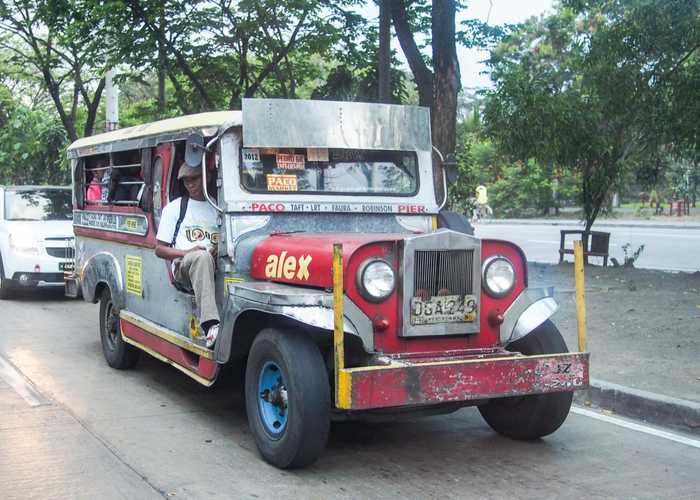
Leave behind original documents
Leave original travel documents at the hotel and bring the copies with you. Take pictures of your travel documents with your smartphone and leave it in the camera roll so you can reference it when you exchange money or for use in other cases.
Keep track of your stuff
Always be aware of your belongings and keep them near you. Petty crime is high in the Philippines, don't make opportunities for your things to get snatched. Keep your items in sight while walking through the streets. If you have a camera, put a strap on it and secure it to your body.
Know the neighborhoods
Do not go into shady neighborhoods unless accompanied by a local you trust. This advice sounds pretty obvious, in many of the larger cities affluent and safe neighborhoods are directly next to the ghettos. I would advise against wandering around neighborhoods aimlessly because one street you are looking at beautiful homes then the next you are walking among homes with corrugated steel roofs. Chances are you will stick out, and it is best to not draw too much unnecessary attention to yourself. Due to the high crime rate, it is not advisable to walk around the neighborhoods just as you would say in London or other Tokyo. If you insist on walking around be alert and let someone know where you will be.
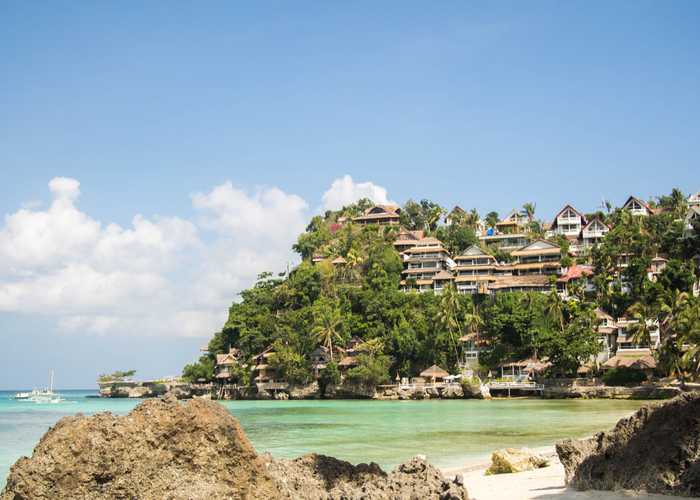
People don't want to be your friend
Filipinos are friendly people, but be aware of people who are being overly pushy. You will not know their intentions, and there are many scams targeted to take advantage of foreigners. Scammers will often work together in an organized group. Many times one person will distract or befriend a tourist while the others snatch the valuables. Don't be scared to say no and shop around. Never feel pressured to make a decision on the first contact.
Public transportation
The buses and subway are crazy packed and a little overwhelming. The only time we rode them was when we had a guide. There is no way in hell I would attempt to ride them without one. It is not impossible to ride public transportation, but it will not be the most efficient way. There is a lack of funding to the public transportation infrastructure in the Philippines and efficiency is not its best quality. Heavy and congested crowds make this an easy target for crime.
Take Taxis, or Uber when getting from place to place. Only accept taxi rides from drivers who use the meter. If they try to force you into paying a quoted amount, I recommend finding a different driver. When inside the car, lock the doors and do not let your driver share the ride with other passengers. Take pictures of identifications written on outside of taxi and send them to people at home BEFORE agreeing to enter the taxi.
Tricycles are another popular form of transportation and are a fun way to see the city. I would limit these rides to the day time only. Jeepneys are also a fun way to get around the town, but they are susceptible to pickpockets. Jeepneys are very raw in their form, no airbags, steel boards, wooden benches and open doors. It is common for thieves to jump on the back of the jumpy and rob the passengers.
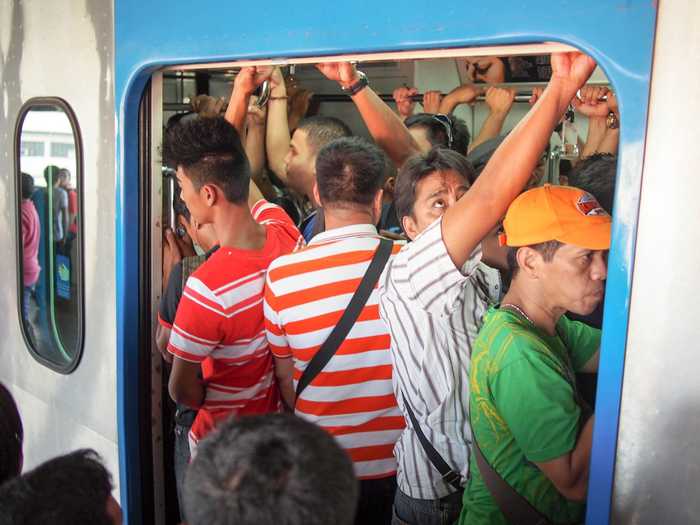
Make travel arrangements
Arrange to have someone meet you at the airport or for your hotel shuttle bus to pick you up. It is not necessary in all cases, but I recommend it for families or people who are new to travel.
Avoid traveling at night
If you can help it, avoid traveling during the evening. The majority of the extrajudicial drug killings, endorsed by Duterte, have happened during the evening. In my opinion, it is worth paying several dollars more for daytime travel.
Avoid large gatherings
Terrorism threats are high in the Philippines and avoiding large crowds is a good way to stay out of trouble. Staying away from large crowds lowers the risk of being pick-pocketed. Stay up-to-date on the country's politics and areas to avoid.
Update vaccinations
The vaccinations you will need depend on where you are going and the time of year. The CDC and WHO recommend travelers have the following vaccinations; typhoid, Japanese encephalitis, hepatitis A, hepatitis B, rabies, measles, mumps and rubella (MMR) and influenza.
Bring medicine
It sucks getting sick while traveling. Being prepared for the inevitable when it hits is the best. I always carry a small designated bag to carry the medicine I am familiar with using. I have added to it over time and have used every medicine at one point. Take a look into my medicine bag using the link below. Read "Medicines to Bring While Traveling"
Pace your drinking
Party safely and monitor your drink, so you do not get roofied. Don't leave yourself vulnerable to dangerous situations. Also, don't accept drinks from strangers unless you receive it directly from the bartender. This practice is something you should do in your home country as well. Unlike in the states, the pouring of alcohol is not metered, measured or regulated; you maybe receive more alcohol in your drink than you are used to.
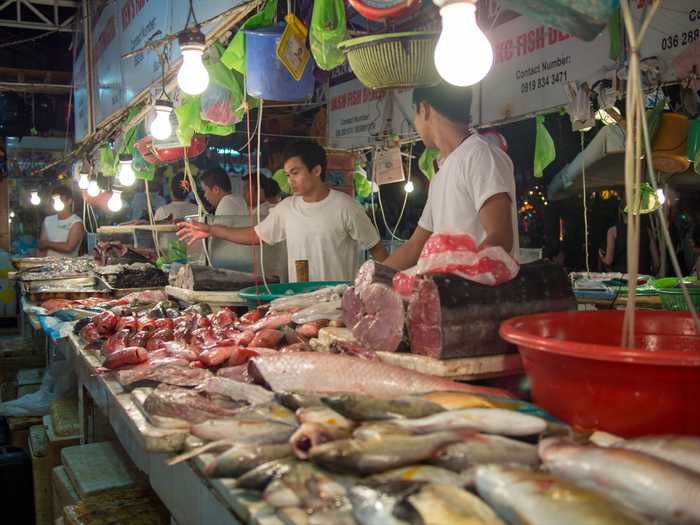
Bottled Water
Tap water is safe for locals to drink, but foreigner's stomachs will not be able to handle it. Avoid drinking tap water and ice cubes and go for the bottled water. Foreigners staying for an extended period will sometimes drink the tap water first thing to acclimate their bodies. If you plan to be there for a few weeks, then I suggest staying away from the tap or else prepare to be stuck to the toilet for two days.
On the islands like Boracay, the water treatment facility is not very reliable. During floods or heavy rains, e-coli is known to easily enter the system.
Dress modestly
Avoid making yourself a target by keeping jewelry to a minimum and not wearing clothes that draw unwanted attention. If in doubt, do not risk it. Be humble in your dress and your gestures.
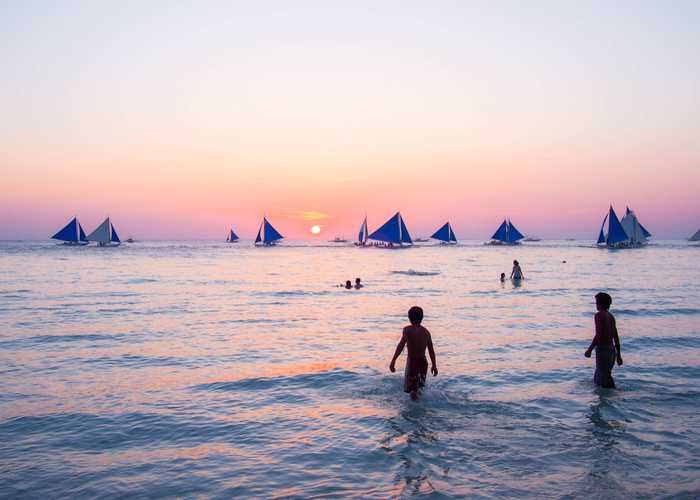
Who to trust?
When traveling to a new country, it is challenging to know whom to trust. In my experience, I have found hosts and hotel staff to be a great source of information, great at English and trustworthy people. Customer service in the Philippines is excellent, and they should be able to give you safety tips unique to the area.
Stay calm
Above all else, the most important piece of information that I could give you is to remain calm and level headed. Listen and be aware of the situation and try to find the most peaceful way out of the situation.
The Philippines can be safe if you are prepared and cautious. Many Filipinos speak English and should be able to help you or point you in the right direction. Good luck and enjoy your trip. As they say, "it is more fun in the Philippines."
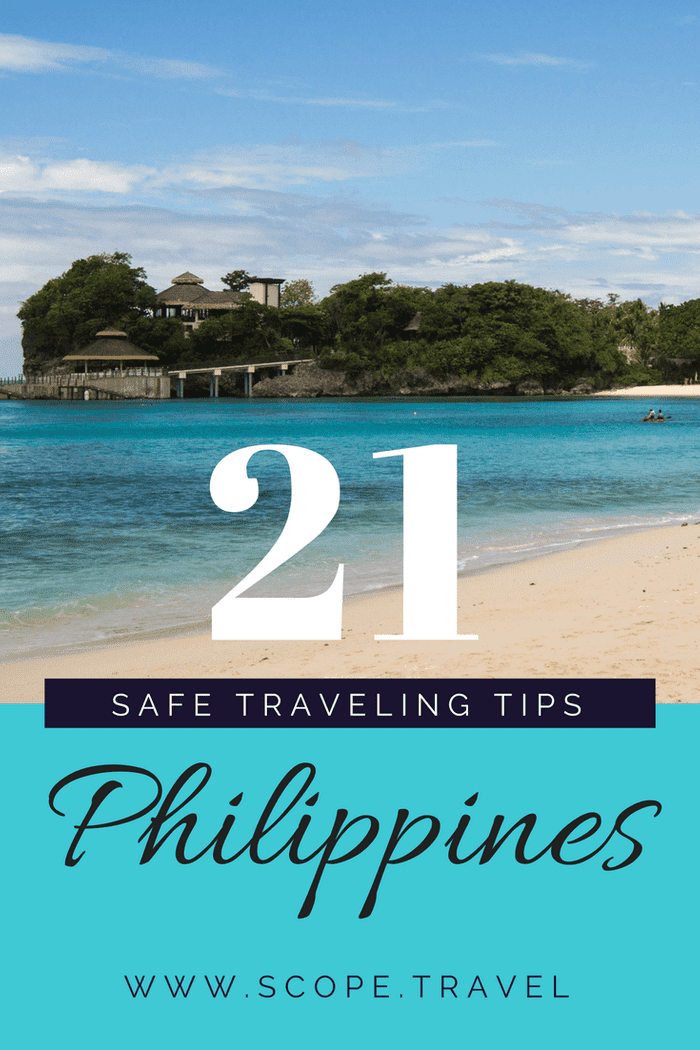
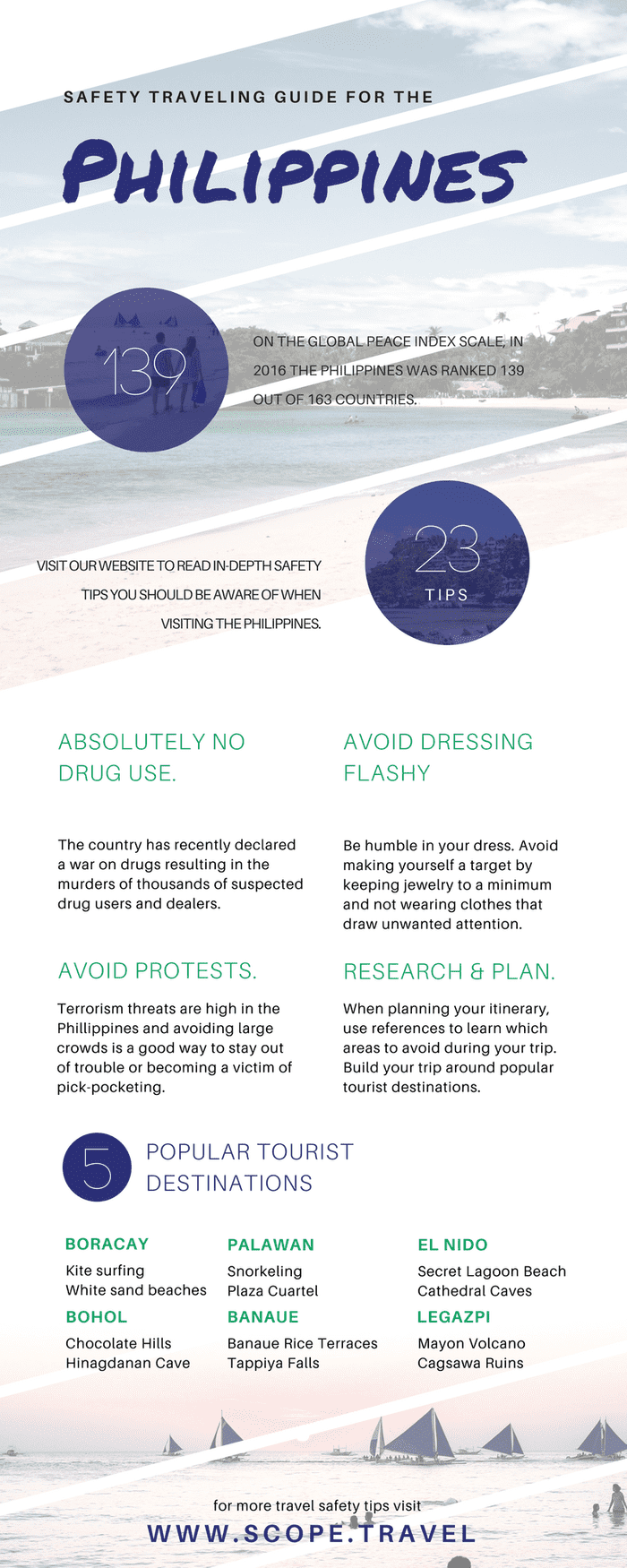
Join our weekly adventures
Gain access to our exclusive travel tips and more!
Expect exotic destinations, big adventures, flavorful food and unforgettable stories from our travels.